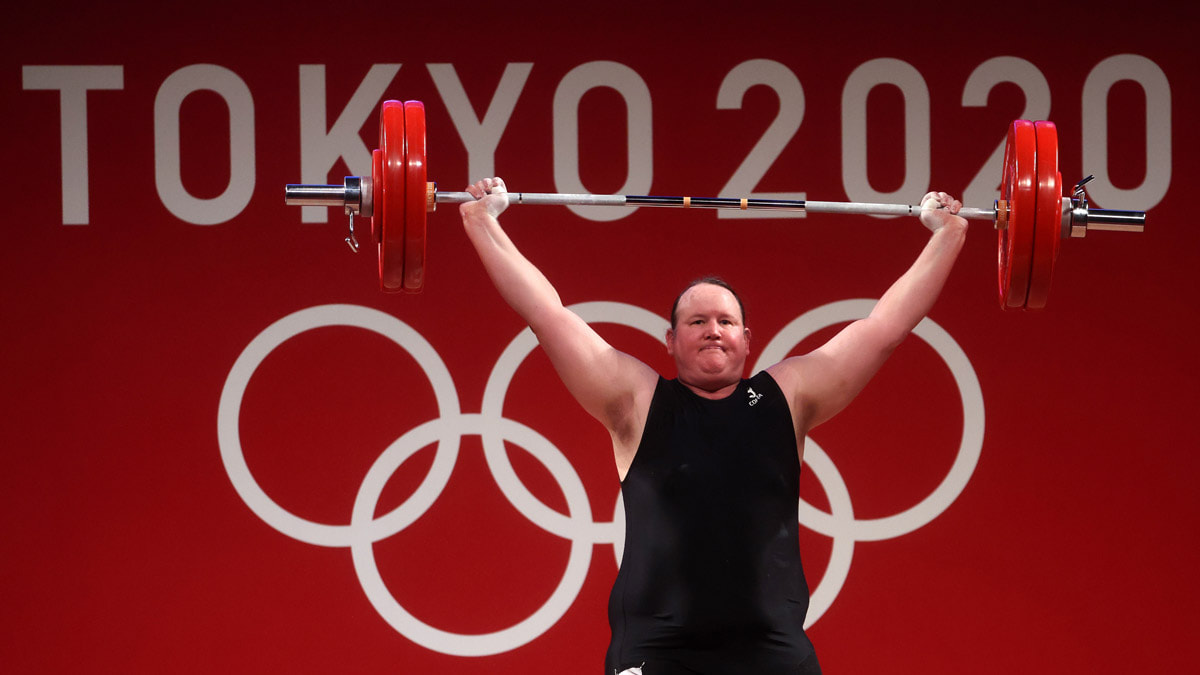|
The prospects for a happy, healthy, prosperous year 2023 are not a lot better than they have been in 2020, 2021, as well as this year happily ending. This pessimistic essay is about only one of the ways we are not improving: social communication.
We are bound together by shared social investment (trustworthy social networks), strong institutions that enhance informed discourse, and shared narratives about who we are. Without these, democracy cannot survive. None of these three forces is working as well as formerly. They rely on communication. Our communication is breaking down. One basic reason for this failure is how we process information, or, better, how we select it. CONFIRMATION BIAS As cognitive beings we have a tribal-survival instinct to agree with evidence that confirms our beliefs. We are biased toward input that our beliefs are right. At the same time we try to ignore whatever contradicts our beliefs. COGNITIVE DISSONANCE Conflicting ideas cause us stress. The name for this stress is "cognitive dissonence." It occurs when we hold two contradictory beliefs at the same time. In the past, we have been taught to welcome opposing ideas. Science is based on the principle that truth results from refining concepts in the face of new evidence. Higher education and research lead to clearer understanding and more accurate knowledge, so we put up with the mental discomfort that comes with learning -- even when our core beliefs are challenged. TOLERATION Our toleration has been eroded. We now have a generation of new adults who never lived in an environment that welcomed diverse belief within their social community. Gen-Z (born after 1990) has arrived at a consensus that emotional discomfort is unnecessary and dangerous. Furthermore, there are acceptable ways to prevent this, through active opposition. It may not be enough to simply isolate ourselves from pernicious opposition by boycotting or shunning. If adversaries encroach on us, as when we have to live within the same political system or locality, we may feel the need to be forceful. Some groups espouse violent opposition as inevitable or as a last resort. Now we have social media, entering a second decade of technical abetment for disseminating socially destructive opinion. One can now denounce dissenting ideas by attacking adherents of those ideas, and social media will automatically draw attention to our attack for people to agree with us. If our group grows large enough, it has influence on those who produce products or pass laws. It's easy to subscribe. All you have to do is hit "like" or "retweet." The validity of information is now far less important than how it confirms our beliefs and the beliefs, policies, and actions of our side. Even more alarming than the way social media help total strangers form alliances and take sides is the way the media provide punishment for dissent. TROUBLE We are in deep trouble when we undermine the correctives to our communication. The most effective remedy for bias is involvement with people who don't share our outlook; but we no longer feel we need to or want to interact with people who don't share our beliefs. And we no longer think there are strong institutions we can trust to develop information that is beyond suspicion. Social media and the algorithms that run them have reinforced our intolerance of diversity and also increased the ease with which we can remove ourselves from unwelcome challenges to our opinions and our beliefs. Thanks to technological developments in social media, we can now "like" a post and find ourselves receiving agreement and countless similar ideas. Studies have found that we pay more attention to ideas of conspiracies to inflict danger on us and our group. We're being persecuted. As if it were not enough that we feel our own community is "embattled and disrespected," there is an ongoing "Information World War in which state actors, terrorists, and ideological extremists leverage the social infrastructure underpinning everyday life to sow discord and erode shared reality" [quote from DiResta's 2018 essay "The Digital Maginot Line" in Jonathan Haidt's "After Babel," The Atlantic, May 2022, downloaded Dec. 23, 2022, entitled "Why the Past 10 Years of American Life Have Been Uniquely Stupid"]. My pessimism for the coming year is that this communication deterioration has not yet run its course or even reached its peak. Artificial intelligence sources are already able to spread "highly believable disinformation" and state entities are finding out how to exploit our communication vulnerability. Meanwhile, technical correctives (such as the ability to detect bots -- internet programs that interact with each other) and social awareness (including willingness to check facts) are just getting started. Our communication trouble is deeper than our ability to send and receive messages. We now know how to do that better than ever. It is the content and intent of the messages that is undermining our communication. What we need to repair is how we think and formulate beliefs.
0 Comments
What about trans-women in sports?
PRESENTING ISSUE The presenting issue is whether there is scientific evidence that trans-women (born as male, now self-identifying as women) have an unfair advantage in sports over cis-women (born as female and self-identifying as female) in athletic competition. This debate is divided into separate issues. Basically the scientific issue is unresolved because science takes time and this has only recently become a matter to be studied carefully. Tentative results seem to say that trans women maintain a small amount of advantage over cis-women, but it is very uncertain that it is enough to make a difference among elite athletes who have to excel in many ways. The social issue is heavily leaning toward "common sense" that "obviously these men turned into women are still physically stronger. It's why we have separate men's and women's divisions in athletics." So, just as clearly, cis-women are disadvantaged when trans women compete against them. The strictly political issue is usually about whether laws should be passed or why some faction is using incidents to advance a political agenda. Too often these discussions pay no attention to anything but expediency. In other words, the issue is whose side you're on. Something trivial often emerges to befog the argument when it's really political, like "how can boys be let into girls' locker rooms?" That's the presenting issue. There is no solution that is becoming a consensus. Professional athletic organizations are being pressured to make decisions. Each announcement reignites the argument and most of them are biased toward shutting trans women out, in one way or another. It's hard to be trans. It's even life-threatening in some societies. CULTURAL ISSUE Beneath the presenting issue is the cultural issue. It may be called "the issue of athletics in modern culture," or, "Why are athletes celebrities and athletics a measure of cultural value?" Or "How come sports became so important?" First, it has not always been this way. In modern times this developed somewhere around the middle of the 19th century. Before that, sports were recreations for the upper classes. Then came a complex idea about what constitutes human nature and what makes some human beings superior to others. Throughout the Middle Ages birth was the factor. One was born into a class. Royalty were on top. But that was challenged, and by the 1850s other factors began to show up, including economic power, with wealthy people often better off than royalty. IQ was recognized as a measure of a person's "quality." And physical factors were added, but always further down the list, and inevitably imbued with racism. Until the modern era, beginning in Europe and North America, military competition was the only real way to establish superiority. By superiority I mean identification of the truly superior people, not just the ones who control others and have power to exploit and benefit. In the modern era, new means were developed of being superior and -- this is important -- of feeling confidently superior as a human being and as a valuable member of society. A distinction has to be made between elite and superior. Geniuses have always been identified and recognized, although some died before recognition came. Nobel prizes are for geniuses, as is the Chopin Competition. On the other hand, superiority is a more democratic quality. Superiority is a complex confidence that one is excellent in some important ways that can be demonstrated and recognized. What happened to athletics in the modern era is that recognition expanded, spread throughout society, turning athletes into celebrities. Modern news media had a lot to do with this. Because news is what the media says it is, sporting events became news, and sports stars became popular. The modern Olympics, restarted in 1896 after 1500 years, created a new arena for demonstrating participants' physical superiority. This became, from that first modern Olympics in Athens, a way to show national superiority, as well. World Fairs were another way. Then came national and international sports. These have taken hold of people's attention and created fortunes for organizers and stars. Commercialization has come to sports. Notre Dame University remains financially viable because of its athletic income (argue with me if you have the facts). Budweiser is America's beer, and Anheuser-Busch exists in that top rank of beers because of the Cardinals. Money helps sports. Locally, athletics may be a community's main identifying factor. Athletes are temporary stars. This is the heart of the cultural issue: Since athletics are culturally important, and since athletics are competative by nature, the competition needs to be regulated so the "playing field" is level. Since athletics is also an important way for individuals to become outstanding and to feel successful, accessibility is sought and controlled. In progressive times accessibility tends to be expanded. Paralympics were added in 1960. New competitions also expand the ways medals can be won. In conservative times, some non-athletic factor emerges to dominate the decision-making. Race was the big matter in the 1936 Olympics hosted by Nazi Germany. Jackie Robinson, the first Black American to play major league baseball, as a breakthrough. At that time, athletics were more progressive than politics. It is imperative, when a previously exempted or unrepresented group tries to gain admittance to compete, that it be established that all competitors are equal in every way except in the skill being contested. It's up to the host to make sure the conditions for the competition are fair for all contestants. The current effort to gain the right to succeed in sports is a matter of gender. Trans women are pushing for access. Athletics are a culturally valuable way to succeed in society. It is only fair that they, too, are given the right to play the games. But it is still unclear how some of the games are to be played for this to happen. |
AuthorRev. Dr. Kenneth Dobson posts his weekly reflections on this blog. Archives
March 2024
Categories |
| Ken Dobson's Queer Ruminations from Thailand |
|


 RSS Feed
RSS Feed
